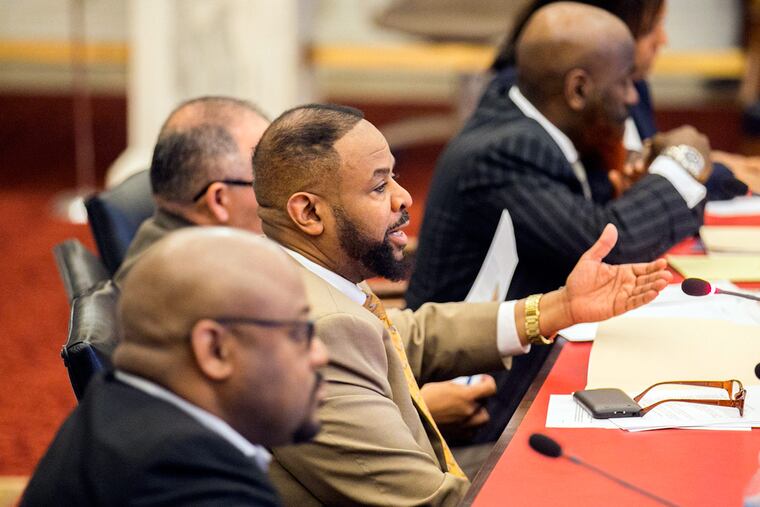Make loan program work for minority businesses
That old saying about the road to hell being paved with good intentions should be the epitaph for the Minority Venture Partnership, an unsuccessful program run by the defunct Philadelphia Commercial Development Corp. that failed miserably to deliver on its promise to create jobs.

That old saying about the road to hell being paved with good intentions should be the epitaph for the Minority Venture Partnership, an unsuccessful program run by the defunct Philadelphia Commercial Development Corp. that failed miserably to deliver on its promise to create jobs.
MVP was created in 1993 using $1.5 million in state money and $500,000 from PNC Bank. Gov. Robert Casey and Mayor Ed Rendell said another $8 million would be raised for the fund within a year, but that never happened. It took 10 years before the agency eventually made $1.25 million in loans, but it was repaid only $225,000. That dashed hopes of using repaid debts to help make more loans to minority entrepreneurs.
Until a few years ago, MVP was run by the Philadelphia Commercial Development Corp., another quasi-governmental agency with too little public scrutiny or direct government oversight. Curtis Jones ran PCDC for 15 years until he resigned to run successfully for City Council in 2007. Following an investigation by city Inspector General Amy Kurland, Mayor Michael Nutter shut down the poorly run agency in 2009.
Somehow, the politically connected seemed to find their way to the front of the line at MVP. Two of its 14 loans went to friends of powerful politicans, including Melonease Shaw, an associate of State Rep. Dwight Evans (D., Phila.) who received a $90,000 loan and paid back only $40,000. Mikel Jones, a boyhood friend of U.S. Rep. Chaka Fattah (D., Pa.), borrowed $150,000 and paid back $20,000.
Another loan illustrates PCDC's indifference to fiduciary responsibility. It lent $50,000 to a company called Pennsylvania Shuttle Transportation, which was run out of a home in the Northeast. The company never had a business license, which should have been the minimum qualification required to apply for taxpayer money.
About $200,000 in leftover MVP funds have been turned over to the Philadelphia Industrial Development Corp., a nonprofit partnership between the city and the Greater Philadelphia Chamber of Commerce that was founded in 1958. But PIDC doesn't have a great reputation for openness either.
Since Mayor Kenney has stressed the importance of open government, he should use his position to make sure any remaining MVP funds are loaned to well-screened businesses that are listed on PIDC's website with information on their fiscal condition and repayment record.
Giving a leg up to minority businesses that have had a hard time finding the capital they need to grow makes sense. But don't hand out money to cronies who use their connections to step over those more deserving of a start-up loan, and more likely to repay it.